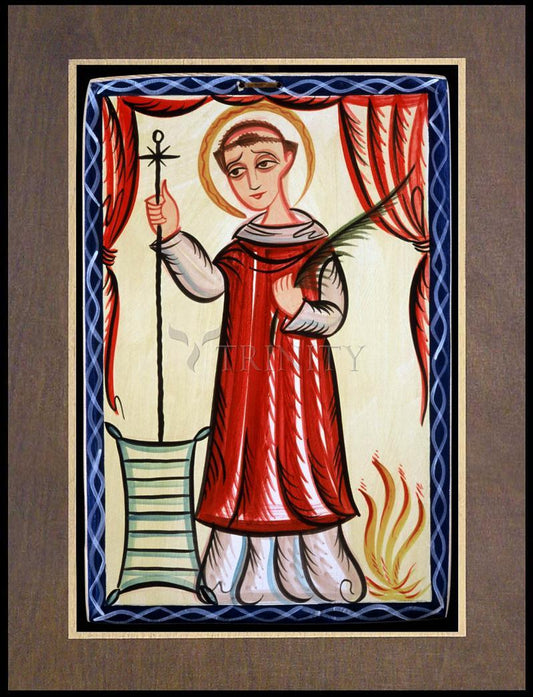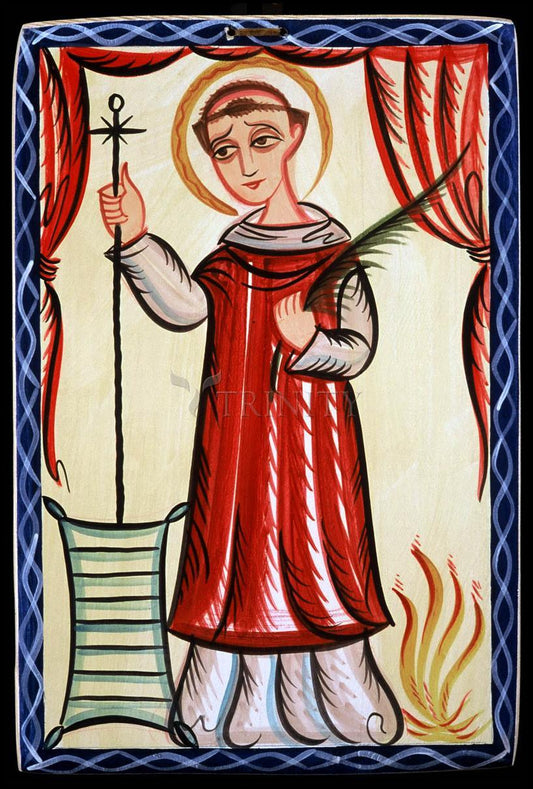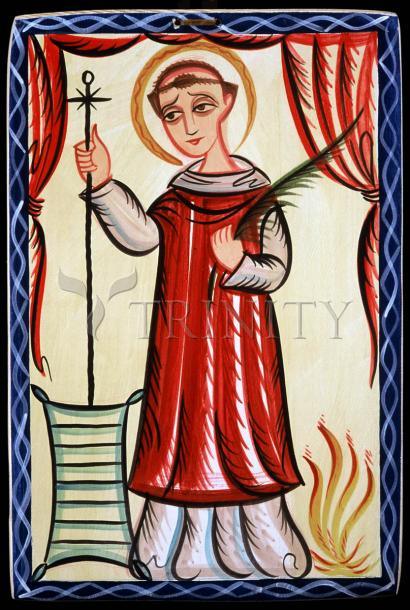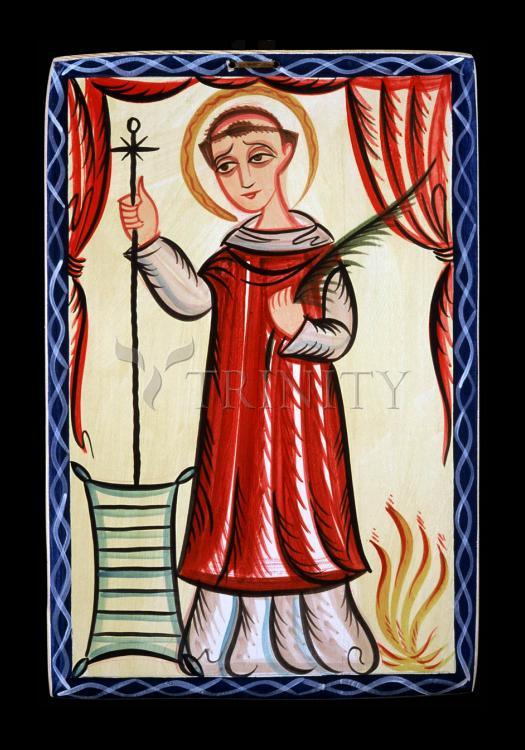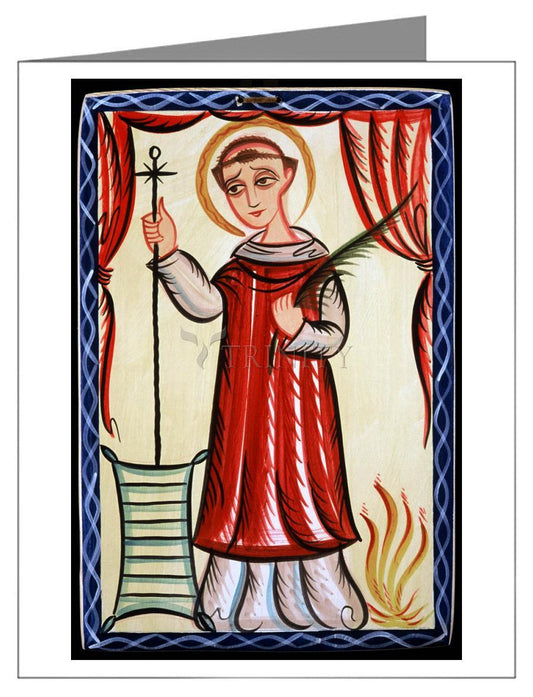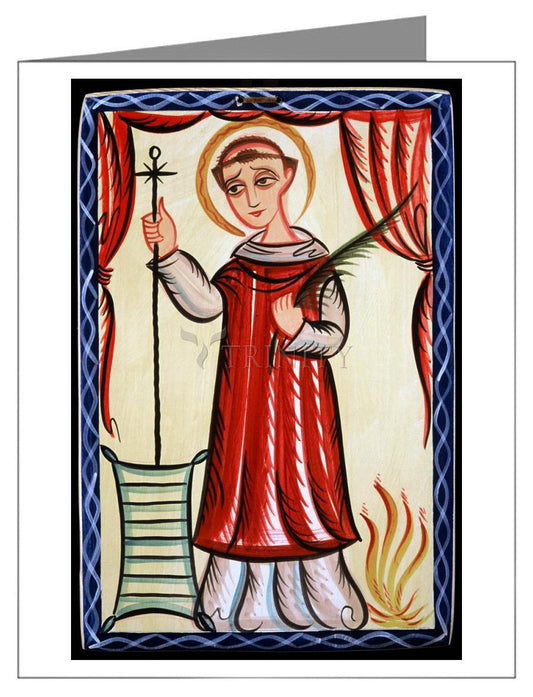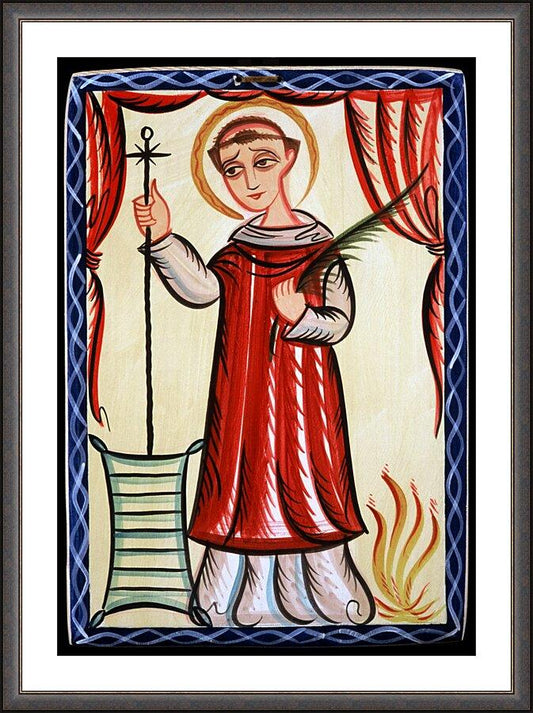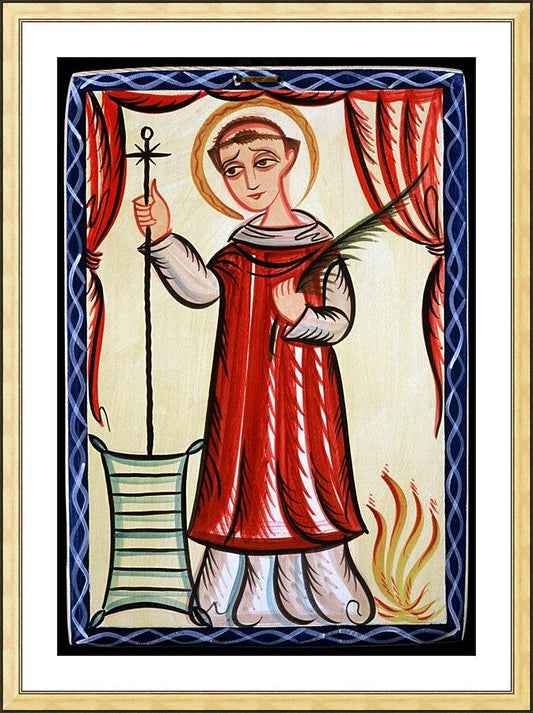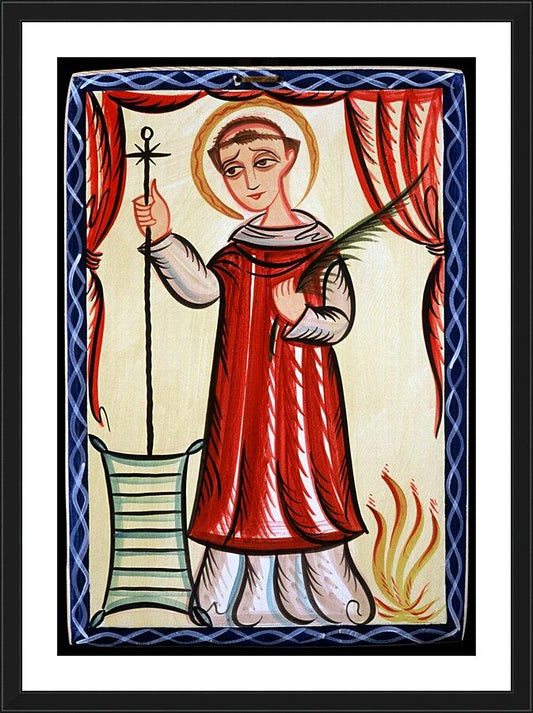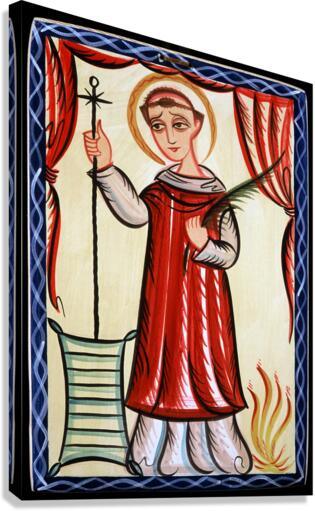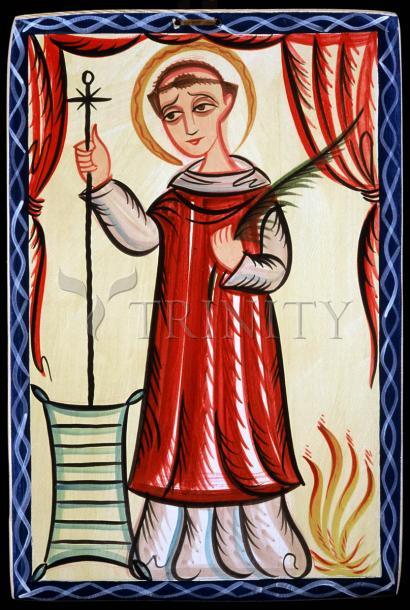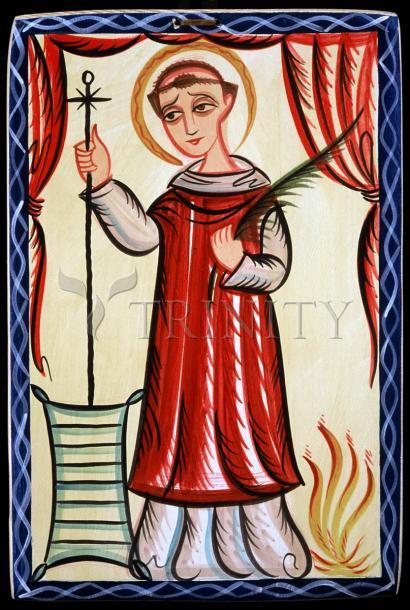St. Lawrence was born in Huesca, Spain.He died in Rome, Italy, 258. Lawrence was said to be a Spaniard who came to Rome to serve Pope Saint Sixtus II as one of the seven deacons of Rome. The pope himself was martyred in 258 during the Valerian persecution, the year after the first publication of the decrees against the Christians. While one version of the martyrdom of Sixtus has him beheaded at the time of discovery in the catacombs, another has him taken away for questioning and returned within a few hours to the spot for execution. In either case, several early Christian writers, among them Saints Ambrose and Prudentius, record that Lawrence was overwhelmed with grief when Sixtus was condemned.
The latter one tells us that Lawrence followed the pope and his captors to the place of execution, asking why Sixtus II should be murdered and not his deacon (however, six deacons were martyred with Sixtus). Sixtus replied, "My son, I am not leaving you. In a few days you will follow me."
Lawrence, overjoyed that he was to follow his master to martyrdom, had one task left. As a deacon, Lawrence was a steward of the property and wealth of the church. It was his duty to provide alms to those in need. Lawrence gathered together all the poor, the orphans, and the widows he could find and gave them all he possessed. Lawrence even sold some of the church's gold and silver, handing over this money too to the needy.
The prefect, Cornelius Saecularis, believing that the Church was wealthy, ordered that everything of value be turned over to the emperor for the upkeep of his armies. The prefect said, "I understand that according to your teaching you must render to Caesar the things that are Caesar's. Your God didn't bring any money into the world with him, all He brought was words. So give us the money, and you can keep the words."
Lawrence said he would need three days to gather it together. In those three days he sold the rest of the property that he administered and brought together thousands of lepers, the blind, and the sick, the destitute, widows, orphans, and the aged. These he presented to the prefect, observing, "The church is truly rich, far richer then your emperor."
In his rage the prefect threatened to kill Lawrence slowly. He took a huge gridiron, heated it until it glowed, and binding Lawrence to the metal, roasted him to death. Ambrose tells us that the fire of Divine love burned so brightly in Lawrence that he bore the agony with unbelievable calm and in the midst of his torment instructed the executioner to turn him over, as he was broiled enough on the one side. Later he said, "It is cooked enough. You may eat." It is said that as he lay dying, his face seemed to be surrounded by a beautiful light. After praying for the conversion of Rome, he died.
According to Prudentius, his death and example led to the conversion of Rome and signaled the end of paganism in the city. There is no doubt that his death inspired a great devotion in Rome, which quickly spread throughout the entire Church. Both he and Sixtus are named in the canon of the Mass.
The existence and martyrdom of Saint Lawrence are attested by the very ancient Deposito Martyrum. However, scholars are not wholly in agreement about how much credence can be given to such particulars about Saint Lawrence because his passio was not written until at least a century after his death. The fact of his martyrdom was widely accepted by the Fathers, but there is room to doubt the details. For example, it is more likely that he was beheaded, as was Sixtus, because this was the usual manner of execution at that time. The gridiron appears to be derived from a Phrygian source through the acta of Saint Vincent of Saragossa.
He was buried in the cemetery of Cyriaca in the Campo Verano on the Via Tiburtina (on the way to Tivoli), on the site of what is now the Church of Saint Lawrence-outside-the-Walls. Five ancient churches are dedicated to Lawrence in Rome, 228 were dedicated to him in England prior to the Reformation, as well as the cathedral of Lund and the Escorial in Spain. Pope Vitalian sent some of his relics to King Oswiu of Northumbria in the 7th century. Lawrence's intercession was reputed to have caused the victories of Christian armies in the battle of Lichfeld against the Magyars in 955, and at Saint-Quentin, in 1557.
Born: At Huesca, Spain
Died: August10, 258; Cooked to death on a gridiron; his mummified head may be in the Secret Archives of the Vatican



